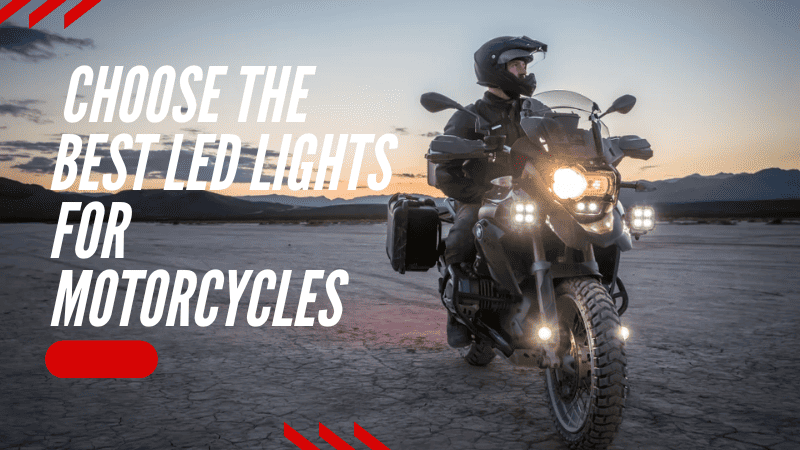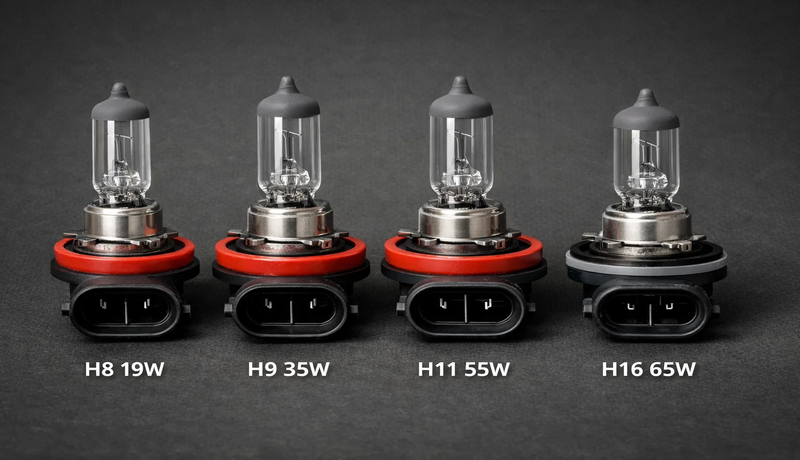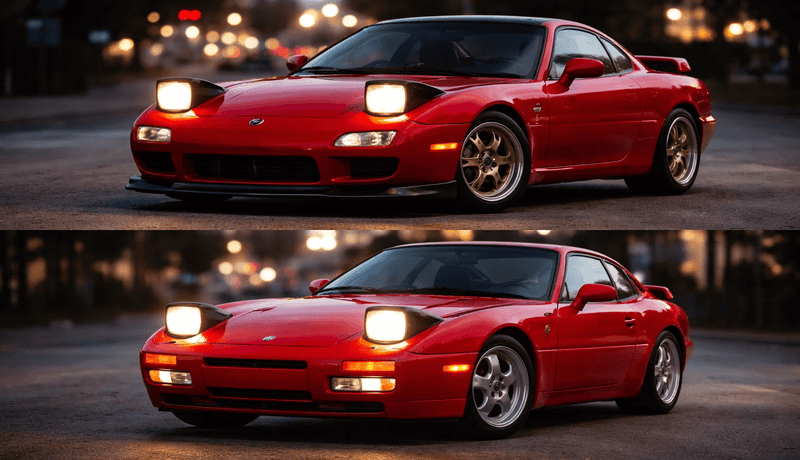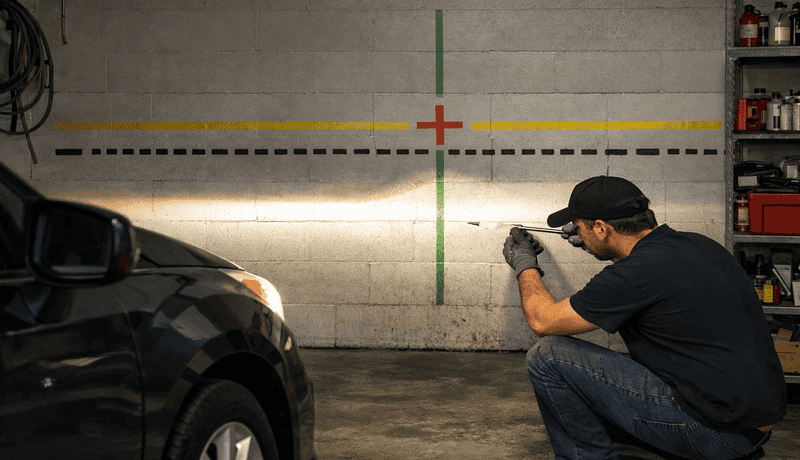In this article, we will take you through the key factors you should consider when choosing LED lights for motorcycles. We will also examine some of the different types of motorcycle LED customers and explain which needs may be of higher priority to each type.
How Do I Choose A Good LED Light For A Motorcycle?
The main thing you should consider when choosing LED bulbs is who your customer is. Motorcycles come in different shapes and sizes and serve different purposes. They can be used for daily commutes, weekend tours, dirt biking through a forest, etc, and individuals also ride their bikes differently.
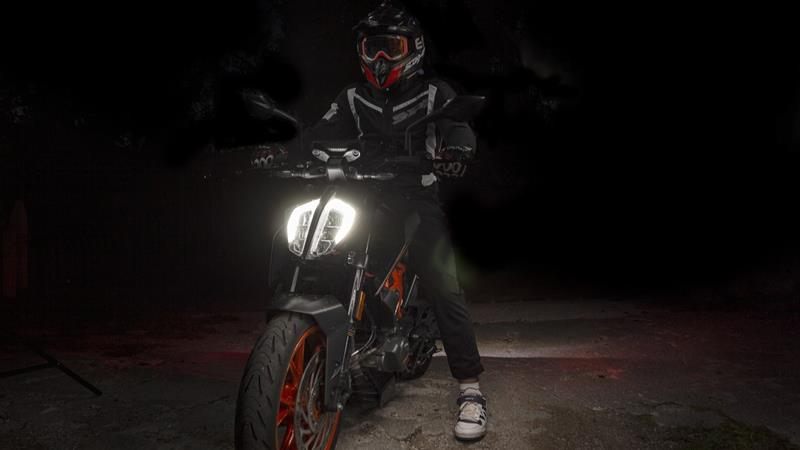
These differences put practical limitations on which lights can be installed on a bike, but they also give you an idea of what lights will be more useful to a certain customer. For example, a daily commuter within a city probably doesn’t need a light bar.
The types of riders you should keep in mind when choosing LED lighting include:
- Retro riders
- Tourers
- Commuters
- Off-roaders
- Racers
- Street squids, etc.
Tourers may find themselves riding at night on poorly lit roads regularly. On the other hand, a commuter may only need their motorcycle to get around within a well-lit urban area.
Racers, off-roaders, and street squids are more likely to crash. Off-roaders will also be riding on rough terrain, and this puts a lot of stress on every part of the motorcycle, including the lights. Forested areas can also be quite dark even in the daytime.
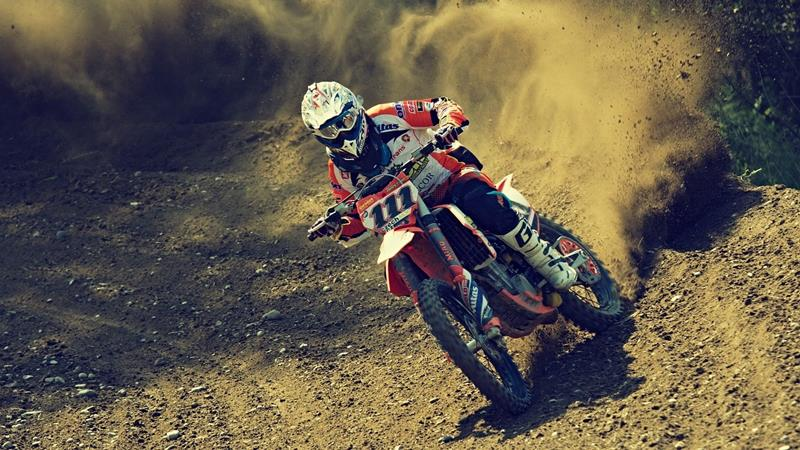
The lights used by these different riders could have differences in light output, beam patterns, durability, and even legality. These and other qualities of LED lights are explained below.
What Are the Key Qualities of LED Lights?
Brightness may be the first thing that comes to people’s minds when you mention LED lights. However, the value of LED lighting goes beyond this and can only be realized when other factors are considered.
1. Brightness
Motorcyclists are 30 times more likely to be in fatal accidents and visibility is a major part of the problem. This is why people prioritize a greater light output whether they’re shopping for headlight bulbs or accent lights.
Brighter lights make riders more visible to other road users. A brighter headlight will also help riders see better at night. Installing brighter halogen bulbs may be an option but these consume significantly more power and are not an option for all types of lighting.
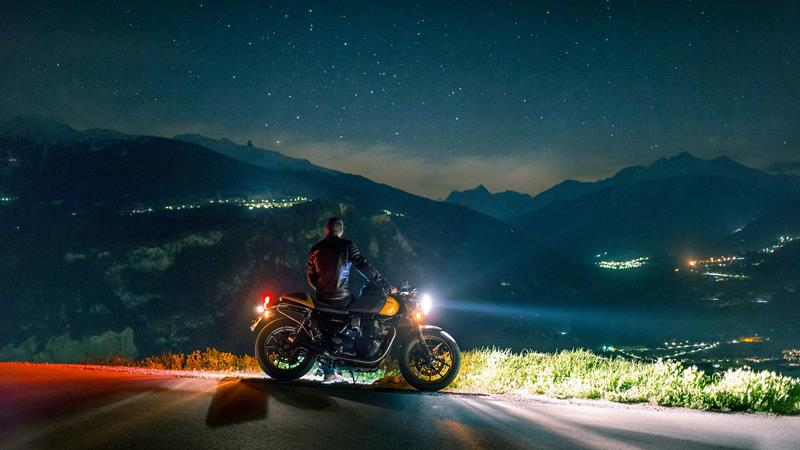
LEDs are much brighter than halogens but require less energy. They can also be used for every type of light on a motorcycle.
2. Color Temperature
Color temperatures below 4000K have a yellow hue while those above 6000K have a blue hue. Those between 4000K and 6000K usually look white and these are said to offer the best visibility in most conditions. You can get LED headlamps in any of these color temperatures.
Yellow lights offer better visibility in fog and similar conditions and cause less eye strain for the rider. They also cause less glare to other road users.
3. Beam Pattern
Motorcycles’ low-beam headlights should cast light in patterns that make them less likely to blind other motorists. This is a legal requirement in many countries. Many riders favor LED bulbs that produce a brighter and whiter light, but these cause more glare if the beam pattern is incorrect.
Some commonly accepted beam patterns are asymmetric, flat, and angled. Asymmetric beam patterns have horizontal cut-offs, but the cut-off on the side of oncoming vehicles is lower.
The flat beam pattern has a single horizontal cut-off while the angled beam pattern’s cut-off is only horizontal on the half that’s on the side of oncoming traffic. The other half rises at a consistent angle towards the edge of the road for wider illumination.
The correct beam pattern varies depending on location. Customers who’ll be touring different countries should be reminded of this.
4. Durability and Weatherproofing
A frequent complaint among motorcycle enthusiasts is how quickly some LED lights fail. This is no surprise because LED lights are not all built the same.

The lights in motorcycles get less protection than in cars. They have to put up with rougher riding conditions, exposure to rain and sand, and a higher risk of knocks. Unless the lights are built to withstand all this, they will fail quite quickly.
A good LED light needs a tough casing that will take a few knocks. The housing should also be sealed to protect the sensitive electrical and electronic parts. The LED bulb should also be built to withstand vibrations.
5. Installation Difficulty and Compatibility
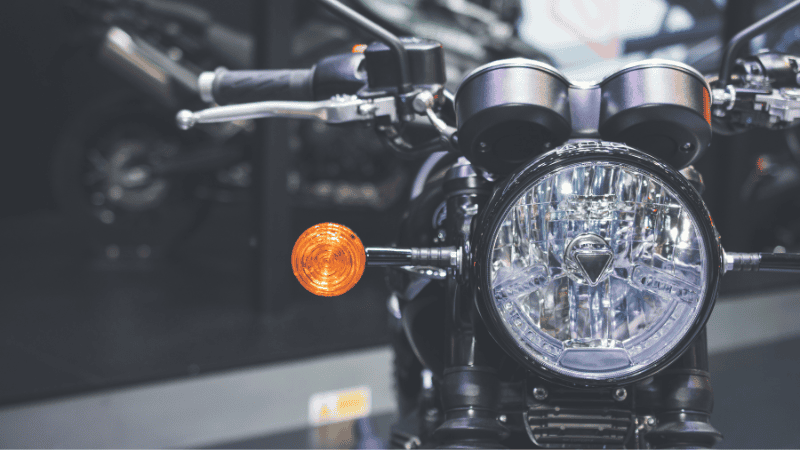
There is less space to install lights on a motorcycle. Bulky LED lights or those with bulky accessories will be challenging to install. This is one reason why HID lights are not common on bikes.
Easy installation of LED lighting is influenced by factors such as:
- Available mounting positions
- Wiring requirements
- Amount of power drawn by the lights
- Size of the LED light plus attached components, i.e., LED driver and cooling fan
Every LED light should be mounted in a compatible position, otherwise it may affect the quality of illumination. Bulky lights may be harder to mount unless specifically designed for the bike.
There should be a means of wiring the lights safely and securely, and the lights should not draw too much power. This is usually not a problem with LEDs but should be a consideration when installing strip lights and other accessory lighting.
6. Heat Management
Heat reduces LEDs’ light output and lowers their lifespans. Therefore, proper heat management is required to get the best out of any LED light.
Heat management is challenging because LED chips always generate a certain amount of heat even when they feel cold to the touch. Lighting companies address this by attaching heatsinks and fans to LEDs. Brighter LED bulbs, in particular, should have suitably powerful fans to avoid thermal issues.
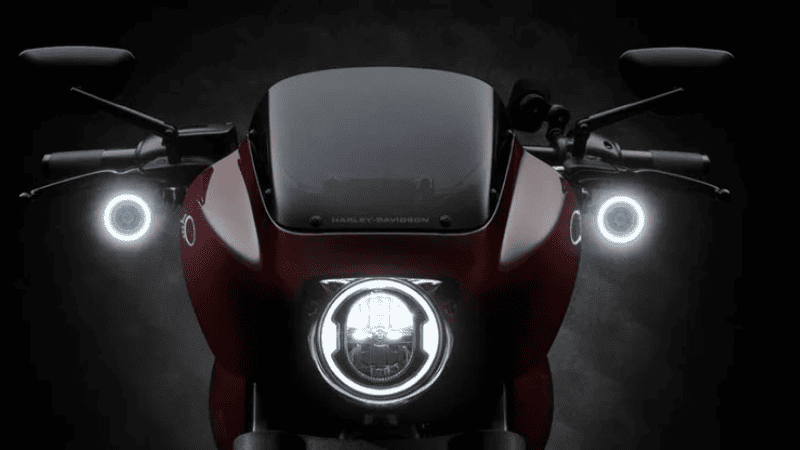
The design of the housing and other factors can also affect heat management. A bulb with poor thermal management will become visibly dim the longer it stays on.
7. Legal Compliance
The legality of LED lights has become a hot-button issue in recent years. LED and HID lights are significantly brighter than halogen bulbs. However, their increased adoption has been marked by a rise in complaints of glare when driving at night.
Glare makes roads less safe for both the riders and other road users. Complying with the legal requirements for LED lights in your jurisdiction is one way to avoid this issue. Therefore, riders should only install LED lights that comply with local regulations.
Legal compliance doesn’t just apply to LED headlights. In some places, having accessory lights on while riding on public roads can also lead to fines. Check your local laws before installing LED wheel lights or other accent lighting on your bike.
8. Brand Reputation and Warranty
The cheapest deal isn’t always the best deal, but paying more is not a guarantee of quality either. This is why many people look to the reputation of the company they’re buying from. Reputation is an easy way to tell if you can trust the claims made by any company.

Lighting companies that have been in the market for several years will undoubtedly build a reputation. This reputation can be positive or negative depending on the quality of their products and overall customer service.
Another way to know if you can trust a manufacturer’s claims is to consider the type of warranty they’re willing to offer. When products come with a short warranty, especially products that are expected to last for years, you should be concerned.
Carlightvision offers a 5-year warranty for their LED headlight bulbs. A warranty of this length ensures there is adequate time to test any bulb and handle any genuine complaints. It is no surprise that this same company has been trusted by over 100 brands all over the globe.
LED Lights for Different Riding Styles
Different riding styles mean riders prioritize different qualities in an LED light. Consider the typical situations for the different riders below:
- Commuter: Mainly drives through well-lit urban streets. Bright lights with scattered beams will constantly blind other motorists. They occasionally ride in the rain but usually on paved roads.
- Adventurer: Likes driving on highways and country roads that may not be busy or well-lit. Probably rides for extended periods, including in the rain.
- Off-roader: Rides hard and on rough terrain. They may not ride as much at night, but may ride through locations with limited visibility during the day. They may be more prone to falls.
- Street-squid: Likes to put on a show, performing stunts at high speeds. Mostly rides through urban streets.
From the above descriptions, you can get some idea of what qualities will make the most difference for these riders. Commuters won’t need the brightest lights, but they’ll need a headlight that won’t cause glare. They’ll also need to consider DRLs and brighter tail lights to stand out in heavy traffic.
Adventurers and off-roaders will both need bright headlights, but off-roaders also have to consider how tough their lights are built or they’ll be replacing them after each ride.
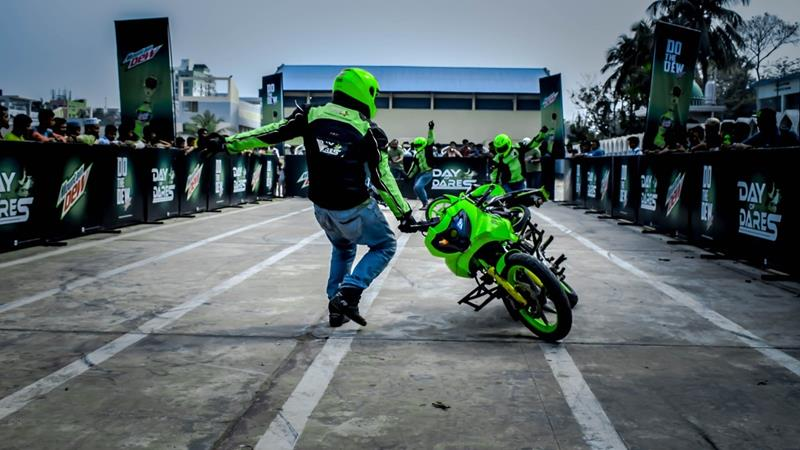
A street squid may not need the brightest headlight, but they may want light kits they can use to put on a show. They may also want lights that are built to withstand the shock of a heavy impact.
Types of LED Lights for Motorcycles
Motorcycles need more than headlights, brake lights, and turn signals. LEDs can replace the regular lights on bikes but can also be used in new and creative ways.
Headlights
LED headlights for motorcycles have caught on in recent years. Bulky HID bulbs are ill-suited to motorcycles leaving LED bulbs as the best choice for riders who want to replace their stock halogens with something brighter.
Turn Signals
Turn signals let those ahead and behind you know which direction you’re turning towards in a junction. LEDs are well suited for this, especially when riders want dynamic turn signals
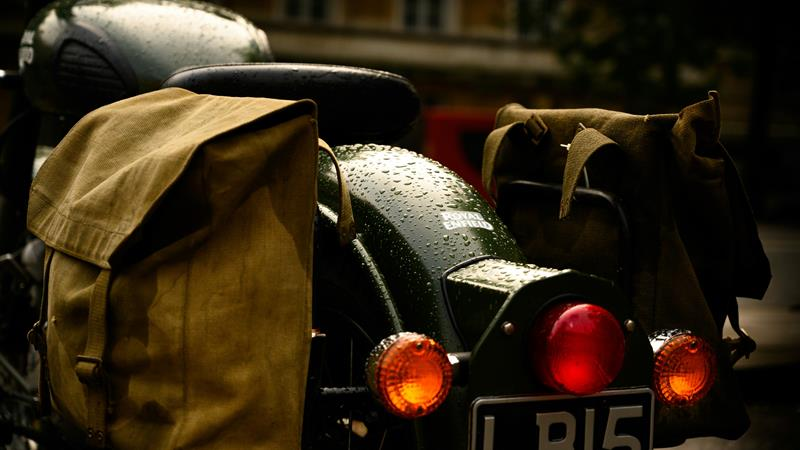
Tail Lights
Tail lights have limited space at the back of a motorcycle so having a brighter LED there makes a difference. Tail lights are usually red and let other road users know the direction your bike is facing.
Fog Lights
Some motorcyclists also want fog lights to make riding in foggy conditions safer. This is a good idea since drivers already struggle to see motorcyclists in clear weather.
Accessory Lights
Some motorbike owners like to add LED accessory lights to their bikes. These may make the bike more visible but are usually added because they look cool.
You can get motorcycle LED light kits and LED light strips for the wheels, body, and other parts of the bike. Some accessory lights even come with smartphone control.
Motorcycle accessory lights are not road-legal everywhere because the flashy display can distract other road users. Additionally, they shouldn’t be installed close to turn signals and brake lights because they can obscure these essential lights, leading to an accident.
Conclusion
LED lights work great on motorcycles whether you want a brighter headlight or RGB accessory lights. These lights are not built the same and different factors should be considered to ensure each rider gets a good experience.
Qualities such as brightness and color temperature are easy to assess, but the same can’t be said of durability and heat management. This is where working with reputable brands who stand behind their products makes a difference.
Why Source Your Motorcycle Lights From Carlightvision?
Carlightvision is a leading manufacturer of LED lights for cars and motorcycles. Our experience spans over a decade and we have many customers who’ll tell you we are the real deal. With our products, you can establish a loyal customer base for LED motorcycle lights and we also offer generous warranties. Contact us today and see how we can keep you supplied with the lights your customers need.
